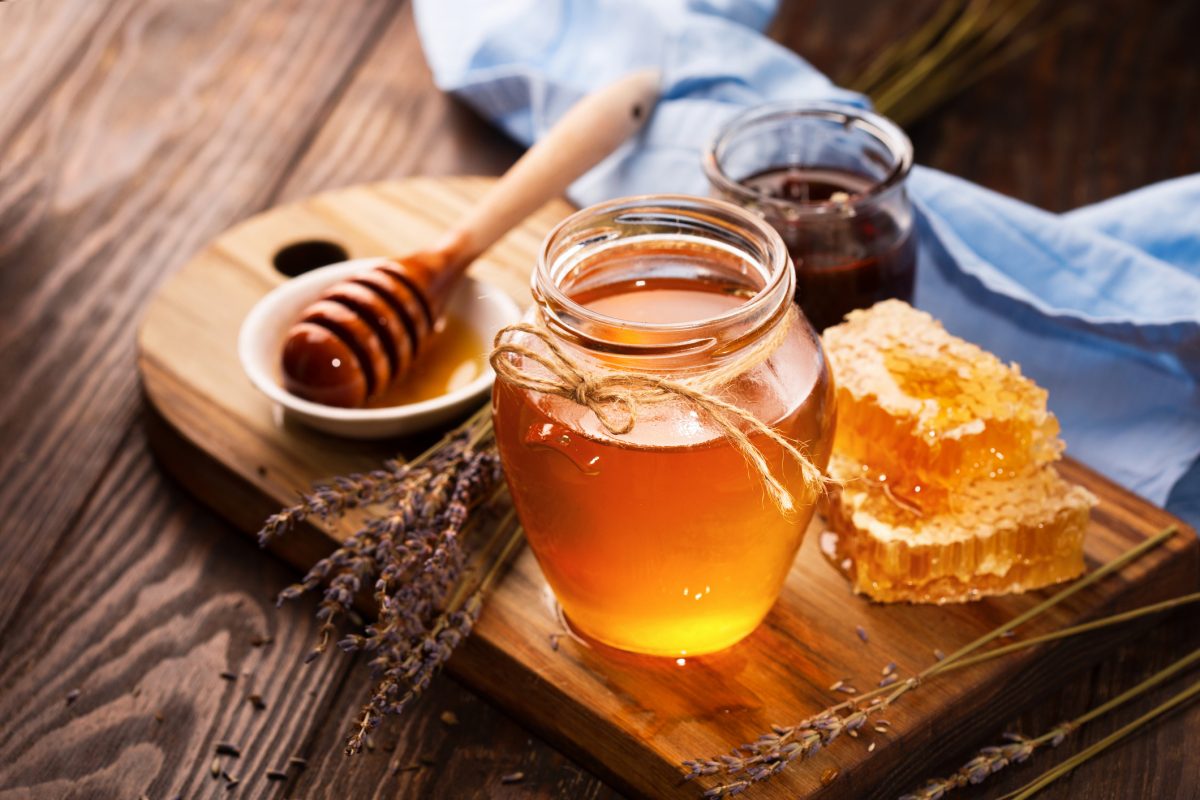Honey has been used as a natural sweetener for thousands of years. Today, local honey is still used to improve food and drinks, and many people also use it as a way to maintain good health. Raw, local honey contains many enzymes, antioxidants, vitamins and minerals that your body needs — and it may even help prevent seasonal allergies.
What Is Raw Honey?
Honey is considered raw if it has not been heated during a pasteurization process. Commercial honey is often heated to kill bacteria and other contaminants. However, the heating process also destroys enzymes and other healthy components. While pasteurized honey looks clear and smooth, raw honey usually has a cloudier appearance and may contain pieces of the beeswax called cappings.
Raw honey is in its pure, right-out-of-the-hive form. It’s harvested from the honeycomb using a centrifuge, and then strained through cheesecloth to remove large pieces of beeswax. Raw honey and organic honey are not necessarily the same. Organic honey is made by bees that pollinate organic flowers. It may also be unpasteurized, and therefore raw — but be sure to check labeling for specific terminology.
Health Benefits
Raw honey has several health benefits. First, it contains antioxidants and phytonutrients that protect your body’s cells from damage as you age. Second, it contains B vitamins and folate, which your body needs to function properly. Third, it serves as a natural cough suppressant and can help soothe a sore throat. Finally, raw honey is said to help reduce seasonal allergies.
Bees use pollen from the same flowers and trees that make you sneeze and sniffle in the spring and fall. When you eat honey produced by local bees, you’re eating some of the allergens that make your eyes water and your nose run. Over time, your body builds up immunity to these allergens so your seasonal allergies won’t be as severe.
How Local Should It Be?
Honey doesn’t have to be produced in your backyard to combat seasonal allergies. According to the East Nashville Farmers Market, honey produced in the general region where you live will have many of the same properties as honey produced right next door. Bees look for pollen that’s close to their hives or apiaries, but the wind and water may carry pollen from miles away, so there’s no guarantee that pollen sources are always located near the hive.
Types of Tennessee Honey
The type of pollen that bees forage dictates the type of honey produced. In Tennessee, clover, sourwood and wildflower honey are especially popular and easy to come by at farmers markets and directly from local producers. You may notice color variations between types of honey. Clover honey tends to be golden, while the wildflower variety may be dark amber.
Tennessee has many beekeepers who sell their honey at local markets, in specialty shops and at roadside stands. Find a beekeeper and ask how the honey was produced to determine if it’s raw or pasteurized.
A Word of Caution
Because local, raw honey may include contaminants, it’s a potential source of food poisoning. Never give honey of any variety to a child younger than one year, and use caution if you have a weakened immune system or health condition that could put you at greater risk of food-borne illnesses.
Local, raw honey may prevent allergic reactions to pollen in your area, and it contains vitamins and antioxidants that help keep your body healthy. Eat a spoonful a day or use it to flavor your foods, but remember — heating it above 95 degrees Fahrenheit will eliminate its healthy components, so room temperature is always best.
Advice or recommendations are for informational or educational purposes only, not a substitute for a visit or consultation with your doctor.
Get more information about specific health terms, topics and conditions to better manage your health on bcbst.com. BlueCross BlueShield of Tennessee members can access wellness-related discounts on fitness products, gym memberships, healthy eating and more through Blue365®. BCBST members can also find tools and resources to help improve health and well-being by logging into BlueAccess and going to the Managing Your Health tab.



1 Comment
WellTuned provides inspiration and practical advice for healthy living.
WellTuned does not offer medical advice. Any personal health questions should be addressed to your doctor.